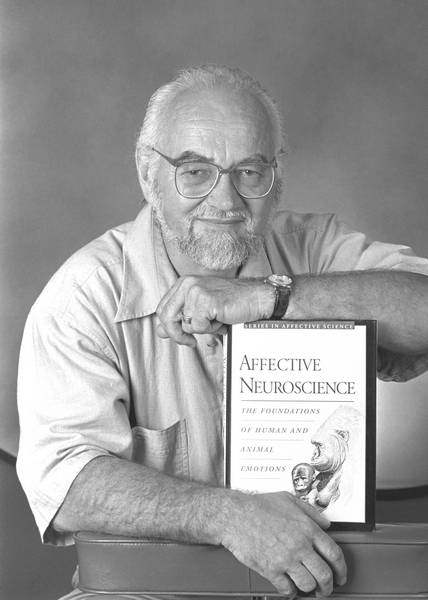
What the doctor ordered?
3/1/2007
Jaak Panksepp

Actualy, this is a cotton rat, not the kind of rat they did the drug research on. But it's kinda cute, don't you think?
Are drug abusers really self-medicating?
A study in this week's Science magazine looks at impulsivity and its connection to drug use in rats. Just Doob It is the utterly lame headline ScienceNow gave its story on the research. Here's link to the abstract of the actual paper. I wish I could give you a link to the entire paper, but that takes an expensive subscription, and if you have one, you don't need my help.
Although it's well known that drug users are also often impulsive and prone to risky behavior, it's impossible to look at someone with a drug problem and distinguish whether he's always been impulsive,or whether the drug simply made him so.
To sort this out, researchers turned to rats, impulsive, devil-may-care rodents. Of course, first they had to find them. Because one can't simply check which rats maxed out their credit cards and never saw a sale they couldn't pass up, researchers instead devised a game that would reveal impulsivity in a species that fails to shop. Or sky dive for that matter.
The rats were taught to watch a bank of five lights. Every five seconds, a light flashed, and beneath the flashing light, a food morsel appeared. Think of it as sort of a rat Blue Light Special. Attention shoppers!
Of the 100 rats who played the game, most caught on quickly. But others could not contain their excitement, and, like the kid who wakes you up 25 times on Christmas Eve, the jumpy rats kept guessing where the light would flash next and dashing forward to look for food where there was none to be found.
When researchers looked at the brains of the rodents using Positron Emission Tomography which means they didn't have to kill the animals first, which is important in this trial -- they discovered the excitable rats had fewer receptors for the neurochemical dopamine in a portion of the brain associated with drug dependency. Dopamine is involved in our pleasure-seeking behavior.
In the second stage of the experiment, eight impulsive rats with a confirmed deficit in dopamine receptors and eight laid-back rats were wired up so they could intravenously administer as much cocaine as they liked. The impulsive rats went coke happy, while their level headed buddies practiced moderation. In fact, the excitables took in nearly twice as much cocaine as their calmer colleagues.
Then the rats went cold turkey. After a period of sobriety they were reintroduced to the light game. This time, the impulsive rats behaved like the well-behaved rats, waiting for the light to flash before they nosed around for the treat. It was as though the cocaine had treated the impulsive behavior.

Jaak Panksepp
The idea that addictive or drug-abusing behavior may stem from individual quirks in brain chemistry isn't new. In fact, this study brought to mind the work of Jaak Panksepp, who used to be at Bowling Green State University and now holds an endowed chair at Washington State University. (Talk about brain drain.)
I first met Jaak nine years ago, shortly after he discovered that rats laugh. He and a student were playing around with a detector that could pick up the high-pitched vocalizations of rodents. They found that when rats played, they giggled like mad. While this revelation landed in such vaunted science columns as Ripley's Believe It Or Not, it was in truth one of those serendipitous discoveries laden with promise for the person who had the sense to see it. It launched the professor his recent work into the neurobiology of joy.
Of course, the whole joy door wouldn't have opened if Jaak's earlier research had not looked at the neurobiology of other animal emotions.
Some of his work discovered that separation distress in rats can be calmed by very low doses of opiates.
Think about this. What may heroin addicts be medicating away? Loneliness? Abandonment? Neglect? Isolation? The problems of drug addiction become something else entirely in this light. And in this newest study, cocaine, to appears to play some sort of a balancing role.
It's easy to forget that most drugs of abuse produce their effects because they so closely resemble brain chemicals. Why do you think they call it Dopamine? And there are opioid. And, for all the smokers, there are nicotinic receptors.
Herein lies the promise. If science can sort out this chemical stew that bubbles in our brains, there may someday be answers for such seemingly intractable problems as addiction, and the self-medication impulse it may, in part, stem from.
Can't help but think: there but for a few dopamine receptors go you or I.